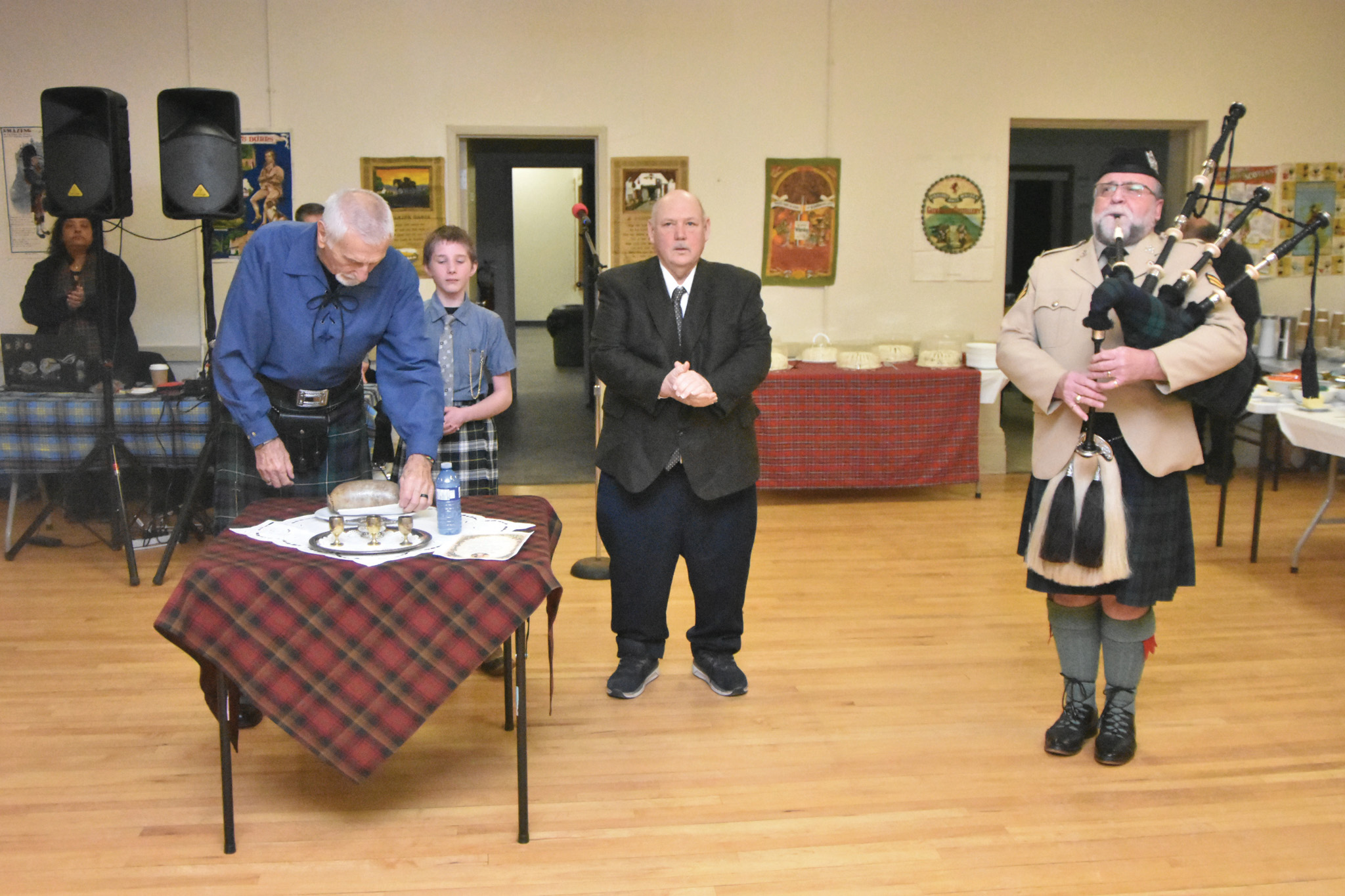Hard work and perseverance, self-sufficiency and adaptability. These characteristics, combined with a love of farming, have made Turnbull Farms in Canfield a long-lasting operation that’s now celebrating 170 years as a family farm.
Andrew Turnbull came to Canada from Scotland in 1840 with his wife, Agnes, and their three children. Their first home was in Niagara Falls. Not satisfied to remain there, Andrew travelled west by foot along the Chippewa Creek.

His preferred choice of land on the Second Line of Seneca was already claimed. He returned and was able to attain nearby Lot 5. The family moved, the land was cleared, and buildings were constructed. When a large plank house was built, town meetings and court were held there on occasion.
The official date on the original deed is May 31, 1855. From Andrew came a succession of farmers beginning with John, then John A., and then Hubert. Two of Hubert’s sons, Jeff and his wife, Nancy, and Kim and his wife, Dawn, carried on the farm. Each couple raised two children – Jeff and Nancy had Heather and Ian, while Kim and Dawn had Alex and Jason. Ian is a sixth generation Turnbull farmer.
The farm grew to include Lot 6, aptly located on what is now Turnbull Road. There was more construction with houses and barns built and remodeled. The farm’s history, Jeff says, was learned from stories passed down over the years.
One story especially highlights how hard Andrew worked. Jeff shares, “The nearest grist mill was in Niagara-On-The-Lake (NOTL). So apparently, he put a bag of wheat over his shoulder and walked to NOTL, … got it milled, and brought it back. I was told that so there’s no reason not to believe it.”
Over the years, livestock has included horses, cows, sheep, pigs, and chickens.
John A. purchased an incubator and a hen house was built. Colony houses came later, with as many as 2,000 chickens raised in a season. Poultry remained on the farm until 1950.
After selling the dairy and beef cows in 1997 and 1998 respectively, the farm became a strictly cash crop operation. Jeff says, “Now we pray for rain and sunshine and grow crops.”
Ian chuckles as he adds, “And sit in an air conditioned tractor.”
Soybeans, corn, wheat, oats, and red clover are the main crops. Kim says, “The majority of the soybeans are food grade soybeans grown under contract…. They’re grown for seed, but the majority of them end up going offshore.”
A seed mill enables them to clean red clover and wheat right on the farm. The Turnbull reputation for quality is seen every year as Kim and Dawn exhibit field crops in local fairs and at the Royal Agricultural Winter Fair.
Adaptability and self-sufficiency have helped keep the farm going amidst outside forces of uncertain economics, bank rates, tariffs, and increasing prices for parts and input costs like seed and fertilizer.
“We’re on a world market,” Kim says. “You have to try to navigate it. Don’t get over extended; keep your head above water.”
Dawn adds, “It’s being able to find what enables you to continue.”
Being able to have “the ability to fix stuff,” as Nancy puts it, goes a long way, with Jeff, Kim, and Ian all skilled woodworkers like their predecessors. While the new workshop is the first farm building not built by a Turnbull, Ian considers it a long-term investment that will allow him to repair equipment indoors.
Reflecting on this 170-year milestone, Jeff, who is now retired, acknowledges, “There are not too many original family farms around anymore.”
Ian balances his love of farming with his job off the farm, working alongside his uncle Kim. He says, “I’m going to continue on as much as I can.”
With Andrew’s grit and determination instilled in each generation, there is reason to hope that Turnbull Farms will remain an original family farm with many more harvests in the years to come.








